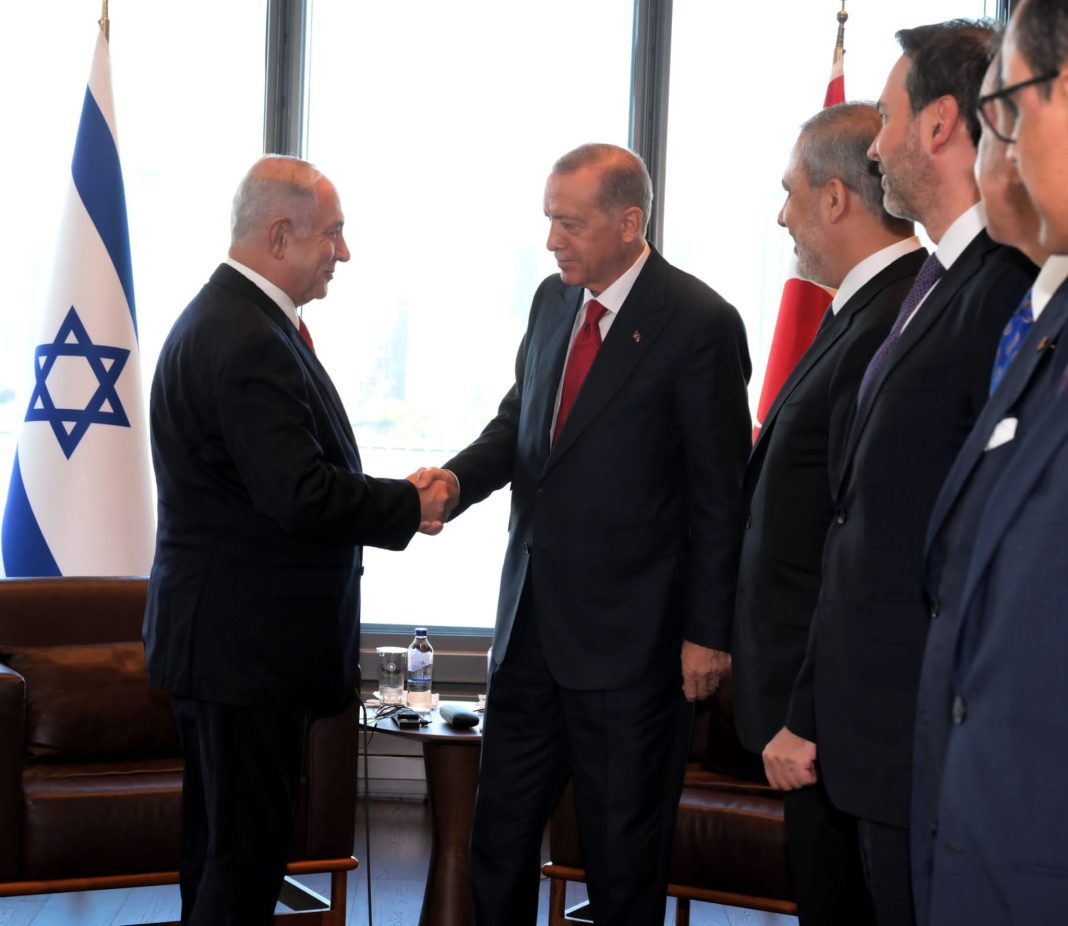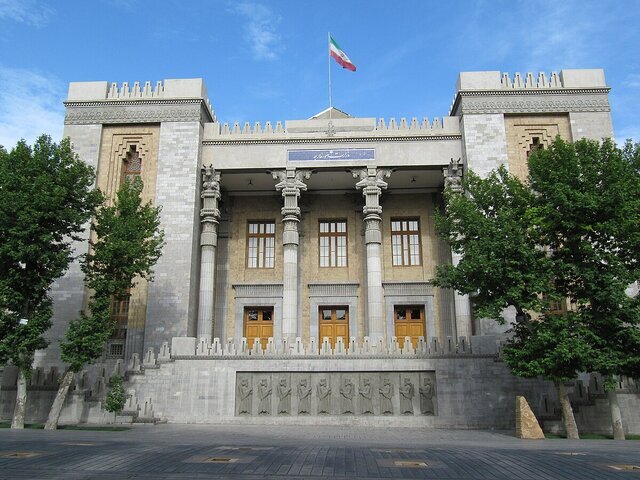After five days of silence, Turkish President Recep Tayyip Erdoğan reappeared to address the Syrian file. In a phone call with Syria’s transitional president, Ahmad al-Sharaa, Erdoğan said, “The Israeli attacks are unacceptable,” and assured that “Türkiye will continue to support Syria.” He warned that the Israeli aggression “threatens the entire region.”
In a striking statement, Turkish Defense Ministry spokesperson Zeki Aktop said Turkish troops in Syria “have not encountered any adverse events,” and added that Türkiye is ready to boost Syria’s military defenses “if requested by the Syrian side.”
Foreign Minister Hakan Fidan accused the Israeli entity of “not wanting peace or stability,” warning, “we will not allow the regional balance to be disrupted.” He also cautioned the Syrian Democratic Forces (SDF) against using the Suwayda clashes to change the status quo in eastern Syria. In a TV interview, Fidan said, “Türkiye cannot tolerate Israel’s escalatory policies in the region,” and urged Tel Aviv to “abandon these dangerous strategies, which harm the region and Israel itself.”
Amid the tense clashes in Suwayda, the Turkish parliament issued a statement condemning the Israeli aggression on Syria. It passed unanimously, except for abstentions by the pro-Kurdish Equality and Democracy for Peoples Party, which had recently criticized al-Sharaa’s leadership. The statement said the “Israeli attacks aim to distract from the genocide going on in Gaza and to destabilize Syria and the region.”
It added: “The international community’s silence about what’s happening in Syria is incomprehensible and emboldens Israel. As the voice of the Turkish nation, the parliament condemns the aggression, reaffirming its solidarity with the Syrian people, who have endured years of suffering.” The statement called on the “global community to act decisively against this aggression, which deepens the regional crisis and threatens global peace.”
From the opposition, former Prime Minister and leader of the Future Party, Ahmet Davutoğlu said, “Israel is now applying the same divisive policies drawn up during the French mandate,” adding, “the goal of its attacks is to divide Syria into ethnic and sectarian regions.” He accused the Israeli entity of “fueling internal divisions” and urged the government to take the lead diplomatically to restore regional peace.
Davutoğlu outlined priorities: “Recognize Syria’s sovereignty as a national security concern for Türkiye, initiate direct dialogue with Washington to highlight how Israel’s aggression threatens Turkish security, support reconciliation between Damascus and the Druze, Alawites, and Kurds, invite Lebanese Druze leader Walid Jumblatt to mediate between the Syrian government and the Druze to counter Israel’s secessionist agenda, take measures against the SDF for cooperating with pro-Israel Druze militias, and intervene diplomatically to resolve disputes between the Syrian government and the Kurds, paving the way for a unified national army with Turkish military oversight.”
In the Turkish press, opposition newspaper Karar wrote that the Israeli entity “has its sights set on Syria’s new leadership,” and that the strikes on the Syrian army are meant to “expand its occupation of Syrian land, consolidating control after inciting the Druze in Golan to play a role in this agenda.” In Cumhuriyet, columnist Mehmet Ali Güler argued that “Israel is using clashes between Bedouin tribes and Druze as a pretext to strike Damascus,” aiming to expand its occupation and pressure Ahmad al-Sharaa to sign a normalization deal in September.
Güler said that the Israeli entity and US are applying the “carrot and stick” strategy, highlighting that “Israeli Prime Minister Benjamin Netanyahu helped al-Sharaa ascend to power in Damascus but now wants major concessions.” He described al-Sharaa as “the leader of the terrorist group Hay’at Tahrir al-Sham,” claiming “Israel allowed him to advance to Damascus, but now it is bombing his army to force him into federalisation. Israel wants an autonomous Druze region that separates it from the rest of Syria, and it wants Kurdish autonomy to confront Türkiye.”
He added that the Israeli entity “occupies 400 square kilometers of Syrian territory and plans to build 10 military bases within 40 kilometers of Damascus.” He criticized Ankara’s past strategy: “Türkiye considered supporting HTS and toppling Assad a historic victory, but it was a strategic mistake. Türkiye thought its relationship with HTS leader al-Golani would serve its interests in Syria. But toppling Assad served Israel, not Türkiye.”
Güler further highlighted that, “If the matter is measured by Türkiye’s support for al-Sharaa, then the United States gave him far more backing,” citing US Ambassadors James Jeffrey and Robert Ford. He clarified that “the real question now is: Who is allowing al-Golani to remain in power? The answer is the US. Al-Golani is now caught in a power struggle between Ankara, Washington, and Tel Aviv, and Israeli airstrikes appear to be their chosen tool to tip the balance.”
Pro-government columnist Cem Küçük wrote in Türkiye newspaper that “Israel’s strikes on Syria carry enormous geopolitical weight,” and added, “There is no alternative now but for Türkiye to intervene militarily.” He warned that the situation is heading toward “establishing a Druze zone and a Kurdish state east of the Euphrates,” blaming the Israeli occupation for pushing both agendas. “Disarming the PKK and the SDF would collapse these Israeli schemes,” he wrote.
Researcher İlhan Uzgel said, “Israel wants a weak Syria and doesn’t want Damascus to govern all of Syria. That now seems to be reality. The legitimacy of al-Sharaa’s government is in question, as no elections have been held and there is no inclusive constitution.” He added, “The government doesn’t control its own airspace or territory. It can’t even move its forces freely; Israel won’t allow it. Israel is calling the shots and telling al-Sharaa that it can either keep him in place or take him down. While the Druze are far weaker than the Kurds, Israel is setting the boundaries for Damascus in the south, which sends a clear message about how it views Damascus’s ties with the Kurds.”
The website İnternet Haber echoed this view, saying the issue “is no longer just about Syria, but about Türkiye’s national security.” It further warned, “If Damascus falls today, tomorrow it will be Aleppo, then Qamishli, then Tel Abyad and Kobani, our entire border.” It concluded, “Redrawing the region’s map is no longer theoretical, it’s happening. Terrorist organizations like the PKK and ISIS, along with Iran, are the biggest beneficiaries. If Damascus falls, Türkiye will lose everything it gained in Syria. If Netanyahu believes he’s responsible for protecting the Druze, then Ankara must protect Damascus.”
This is an edited translation of an article originally published in Arabic.



